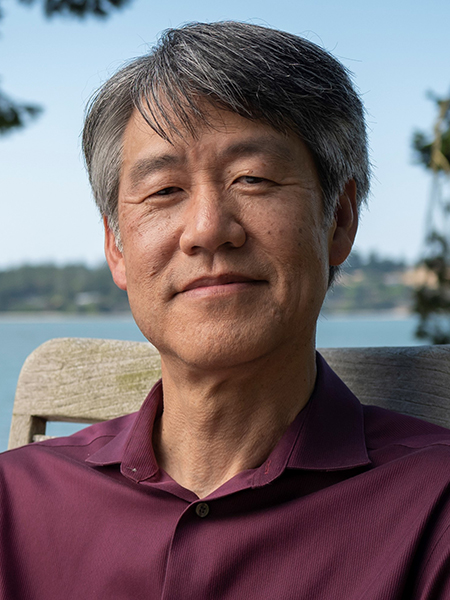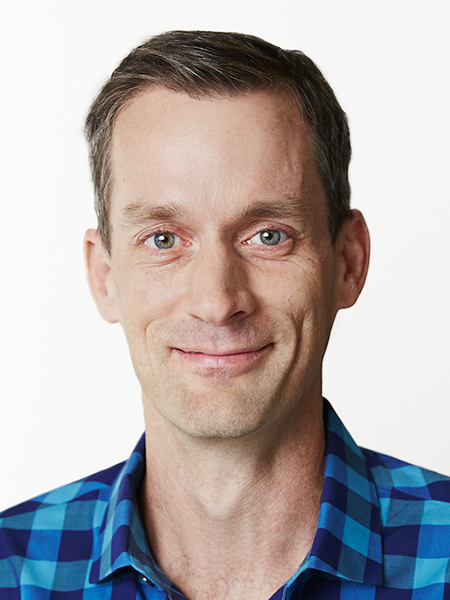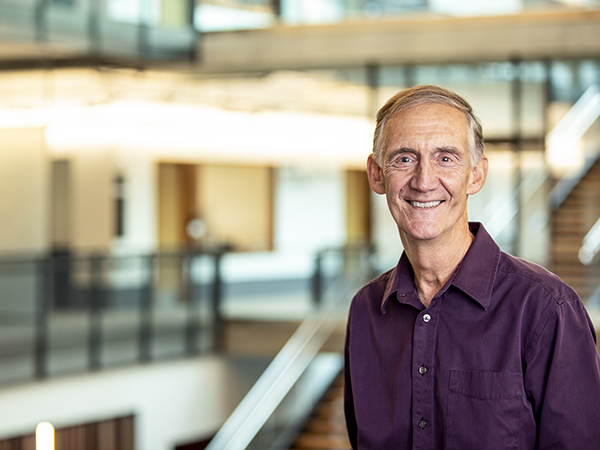
“If you’re not part of the steamroller, you’re part of the road.“
That maxim once graced the top of Allen School professor Ed Lazowska’s homepage before he evidently decided to tone things down upon reaching his 70s. Anyone who knows Lazowska can’t imagine him actually toning anything down; as a motto, those words perfectly encapsulate the fervor with which he has approached all things related to the Allen School, the University of Washington, and the local technology community over a career spanning more than four decades. During that time, he has been one of the Puget Sound region’s most vocal champions — and among Washington students’ staunchest advocates — when it comes to expanding economic opportunity through the growth of computing education, research, entrepreneurship, and business activity in the state.
Last year, a group of technology leaders who have worked alongside Lazowska to boost the UW and greater Seattle as innovation hotspots came together to recognize his outsized impact. Peter Lee, corporate vice president of research and incubations at Microsoft, and Allen School alumnus Jeffrey Dean (Ph.D., ‘96), a Google Senior Fellow and senior vice president of Google Research and Google Health, hatched a plan to cement their friend and colleague’s legendary status to mark his 70th birthday. They teamed up with Brad Smith, president and vice chair of Microsoft, and Harry Shum, emeritus researcher at Microsoft, to make a combined $1 million gift to the UW. The purpose of their gift was to establish the Endowed Professorship in Computer Science & Engineering in Honor of Edward D. Lazowska to support the recruitment and retention of faculty who will advance the Allen School’s leadership in the field — and serve as a lasting tribute to how Lazowska has uplifted students, colleagues, and the entire computing community.
“In increasing order of importance to my life and career, Ed has been an academic colleague, teacher, mentor, and friend. And I am far from alone,” said Lee, who was a faculty member and chair at Carnegie Mellon University’s Computer Science Department and a DARPA Office Director before he joined Microsoft. “His direct positive influence on so many bright and ambitious minds, especially in their formative years, has had an impact on the world that will last for decades to come.”
At first, Lee and his co-conspirators kept the plan hush-hush in the hopes of being able to celebrate their gift with Lazowska in person. When the ongoing pandemic scuppered those plans, they decided instead to surprise him on his birthday with a virtual reveal. In the summer of 2020, Lee reached out to Lazowska to set up an online meeting. The latter assumed it would be a work-related discussion.
“Peter requested that we Zoom on the Saturday before my 70th birthday. When I logged on, Jeff, Brad and Harry were there, as well,” Lazowska recalled. “They told me what they had done, and what they planned to do, and I was literally in tears by the end. I can’t overstate what their friendship and support has meant to me and to the school over the years. They’ve always stepped up whenever I’ve asked for help. But this just blew my mind.”
The trajectory of UW Computer Science & Engineering itself has been mind-blowing since Lazowska’s arrival. He joined the faculty of what was then known as the Department of Computer Science — the “& Engineering” would come later — in 1977, the same year he earned his Ph.D. from the University of Toronto. His early research focused on the development of effective performance evaluation techniques to gain insights into computer system design issues. He was part of the UW team that secured the first five year, $5 million award in the National Science Foundation’s Coordinated Experimental Research Program in the early 1980s, which established the department as a leader in academic research focused on computer systems and contributed to UW’s ranking among the top 10 research-doctorate programs by the National Academies.
Later, Lazowska turned his attention to the design and implementation of distributed and parallel computer systems, for which he and his students and faculty collaborators produced a number of widely-embraced approaches to kernel and system design, including thread management, high-performance local and remote communication, load sharing, cluster computing, and the effective use of the underlying architecture by the operating system. His contributions would yield a series of firsts for the Allen School: the first faculty member to be named a Member of the National Academy of Engineering; the first Fellow of the American Academy of Arts & Sciences; and the first holder of an endowed chair, the Bill & Melinda Gates Chair in Computer Science & Engineering, which he held from 2000 to 2020.
Lazowska’s tenure as department chair from 1993 to 2001 was characterized by a strong commitment to service and advocacy. K-12 education was a cause he felt particularly strongly about; in a partnership with Seattle Public Schools, Lazowska spearheaded the development of district-wide technology standards and assisted with raising the funds required to install school-based networks. These and other contributions at the local, state and national level would earn him the 1998 UW Outstanding Public Service Award — one of many university-based accolades Lazowska has earned during his tenure.
With the local tech scene rising in prominence, Lazowska harbored grand ambitions for UW CSE that went beyond technical excellence. When he first joined the department, the faculty numbered a grand total of 13 members — all of them men. Once freed of the day-to-day administrative burden of running an academic unit, Lazowska would direct even more of his famous energy to initiatives that would diversify the field of computing at all levels while continuing to build up the UW program in both size and stature.
By 2015, the Allen School had increased the percentage of undergraduate computer science degrees awarded to women to more than twice the national average among peer institutions. This milestone would lead the National Center for Women & Information Technology (NCWIT) to recognize the school with its inaugural NEXT Award. That was a good start, but Lazowska knew the school could — and should — do more. Around that time, Dean and his wife, Heidi Hopper, reached out to Lazowska looking to support initiatives focused on broadening participation. Through their foundation, the couple bolstered the school’s efforts to intensify its outreach to underserved communities and build out an infrastructure for supporting students from diverse backgrounds once they arrive on campus. Lazowska was also a leading proponent of the Allen School’s participation in the LEAP Alliance — short for DIversifying LEAdership in the Professoriate — working with the Center for Minorities and People with Disabilities in IT and other leading computer science programs to recruit and mentor Ph.D. students from underrepresented groups to prepare them for faculty careers.
“Ed is an inspirational computer scientist and leader,” said Dean. “I have deep respect for him as an educator from our multi-year partnership working to improve computer science education and broaden the participation of underrepresented groups in computing. He has been talking about this issue for decades — and one of the many things I like about Ed is that he translates talk into action that gets results.”
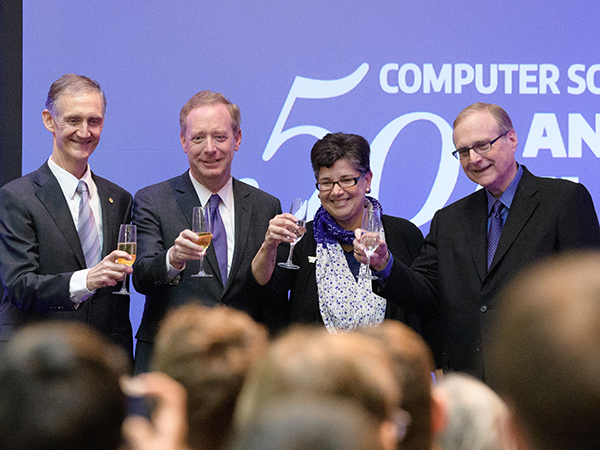
Perhaps the most visible result of Lazowska’s action-oriented approach is a pair of state-of-the-art buildings sitting across from one another at the heart of the UW Seattle campus. The Paul G. Allen Center, which opened in 2003, offered what was then still known as the Department of Computer Science & Engineering its first state-of-the-art home, while the Bill & Melinda Gates Center, which opened in 2019, doubled the school’s space while emphasizing the undergraduate student experience. Lazowska was the driving force behind the fundraising for both, in partnership with tech community leaders. In between, he was instrumental in orchestrating the elevation of the department to a school through an endowment from Paul Allen and Microsoft.
The buildings were not a luxury but a necessity; in addition to fierce competition for faculty and research dollars, there was also the matter of where to put an increasing number of students clamoring for admission to the program. Lazowska, for his part, did whatever he could to expand the school’s capacity to serve more students. He was an early evangelist for linking the growth of the technology sector in Washington with creating career paths for Washington’s students. Armed with slide after slide projecting the dramatic growth of computing jobs in the state and nationally — and the corresponding shortage of in-state graduates to fill those jobs — Lazowska would make the case to anyone willing to listen that the future of Washington’s tech industry and of its young people depended on investing in computer science education. He was a frequent visitor to the state capitol in Olympia, where he joined forces with Smith and other local technology leaders to drive the point home.
Their message found a receptive audience. In 2012, the legislature initiated the first enrollment increase in Computer Science & Engineering at the state’s flagship university in a dozen years. That appropriation turned out to be a down payment on roughly a decade of transformational growth. As fast as the legislature could fund additional student slots, the program expanded. By 2021, the Allen School had more than doubled its degree production to more than 630 graduates per year; the school is now on track to approach 700 degrees annually within the next few years, thanks to the legislature’s support.
“Ed has always been the most effective advocate for the cause of science and technology research and education,” said Lee, “and the secret to his effectiveness is that his focus has always been on helping people to realize their dreams.”
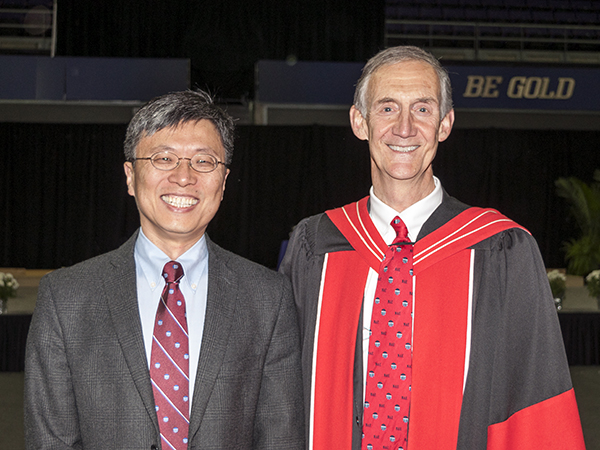
After Lee, Dean, Smith and Shum revealed their gift to Lazowska in the summer of 2020, they embarked on a quiet campaign to encourage a small number of others to contribute at a significant level so that the fund would be able to award multiple professorships. Since then, the school has issued a broader appeal to alumni and friends who may also wish to contribute. Lazowska has largely been kept in the dark throughout, other than being aware that the fundraising is ongoing and that members of the extended Allen School community have been invited to participate. While the school will continue to welcome contributions to the endowment in the future, the official fundraising campaign will conclude at the end of this year and the full complement of donors will be revealed. The Allen School plans to host a celebratory event in the spring.
While the initial donors hope the endowment will continue to grow, their support has already enabled the Allen School to select the recipient of the first Lazowska Professorship: Luis Ceze, a faculty member since 2007. Ceze, who began his career in computer architecture, has since expanded into software/hardware co-design, full-stack optimization of machine learning applications, and new capabilities at the intersection of computing and biology like digital data storage in synthetic DNA in partnership with researchers at Microsoft. Ceze is also co-founder and CEO of OctoML, an Allen School spinout that helps companies to accelerate deployment of machine learning applications across a range of hardware platforms and which has raised more than $130 million in venture funding to date.
“Ed is a force of nature, and he cares deeply about our students and the community,” said Magdalena Balazinska, professor and director of the Allen School. “He also always has one eye on the future, whether it be his vision in setting up the UW eScience Institute in response to the growing importance of data-intensive discovery, or his early recognition of how important cloud computing would become, or his various service roles aimed at making our discipline more welcoming and inclusive.
“Luis is similarly forward-looking, propelling our school and our field in new directions and exemplifying that spirit of collaboration, innovation, and inclusiveness which we want to amplify with this new professorship,” Balazinska continued. “I’m grateful to Peter, Jeff, Brad, and Harry for their friendship and support over the years. Their latest gift is a wonderful way to pay tribute to Ed for everything he has done for our school and for our field.”
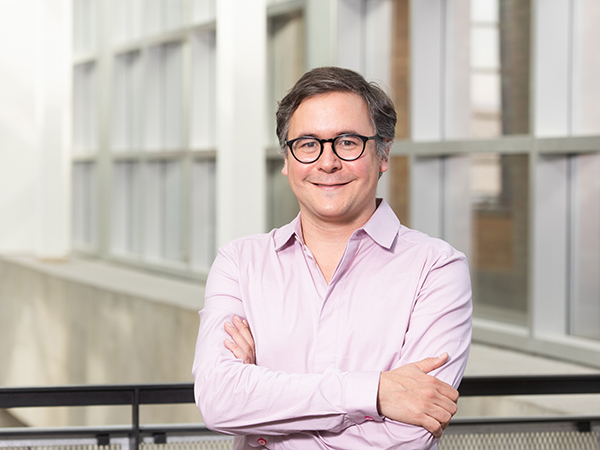
As specified in the endowment agreement, the professorship will be renamed the Edward D. Lazowska Endowed Professorship in Computer Science & Engineering once its namesake retires from the UW. In the meantime, the founding donors hope that still more friends and alumni will join them in contributing to the endowment.
“It’s all totally amazing, and really moving. And in addition to being an incredible honor for me, it will be powerful in helping the Allen School to recruit and retain great faculty,” Lazowska said. “I’m deeply grateful to those who have honored me, and I’m thrilled that Luis has been awarded the first professorship. He’s emblematic of the future of the Allen School: he’s smart, he’s creative, he’s both broad and deep, he’s a wonderful colleague and collaborator, and he’s a good human being.”
As another famous maxim goes, “It takes one to know one.”


